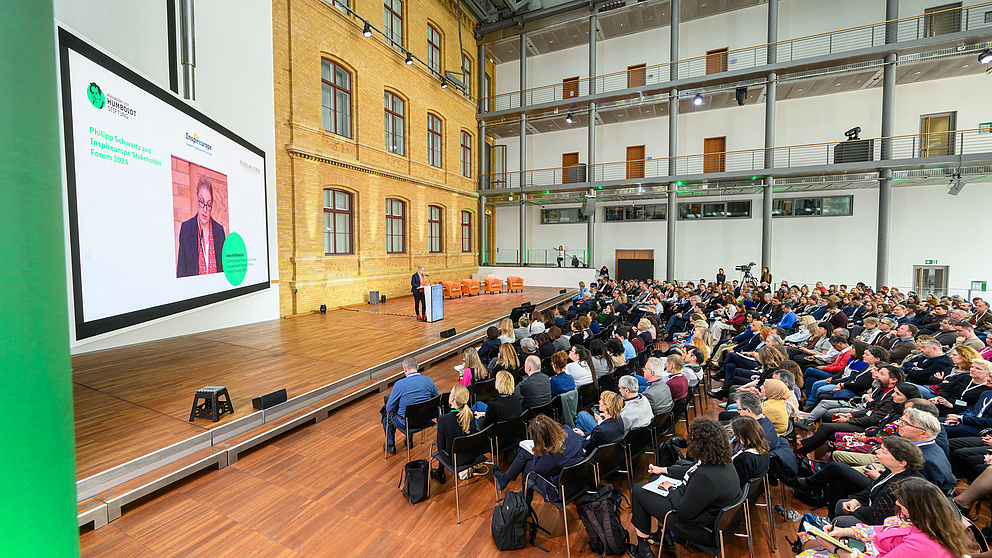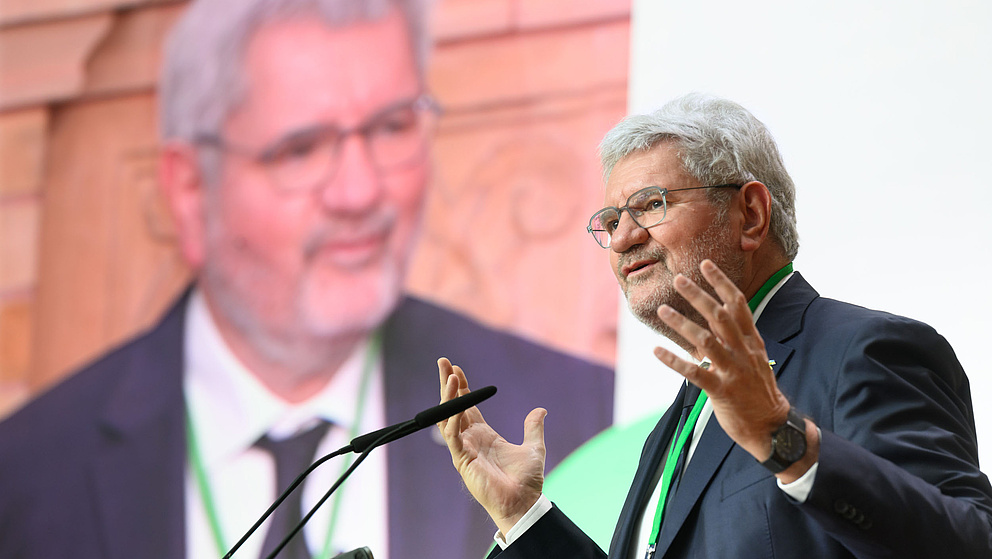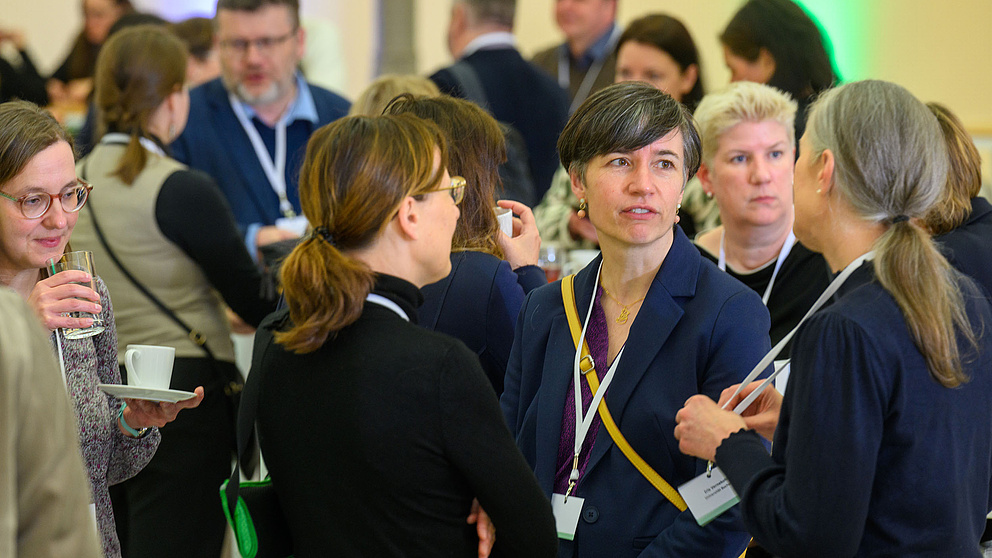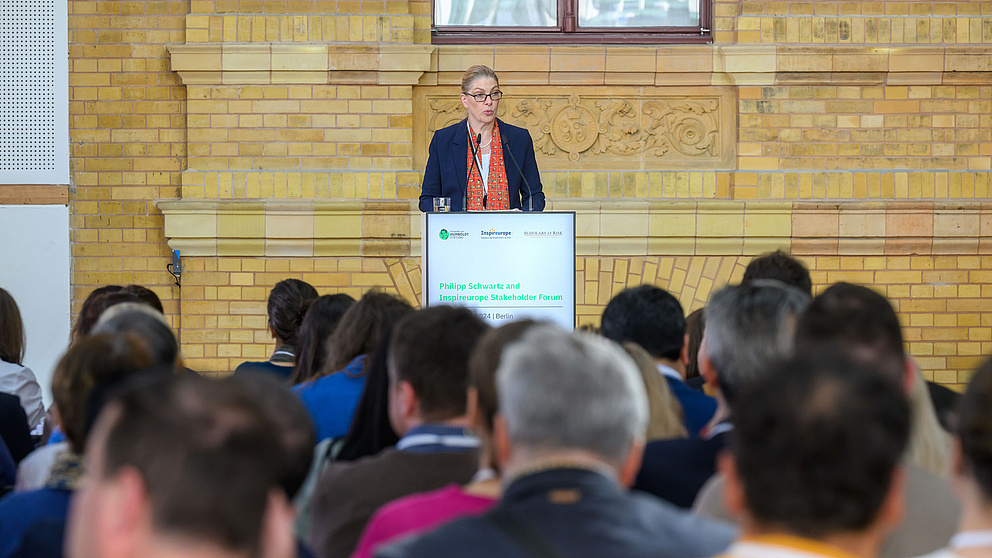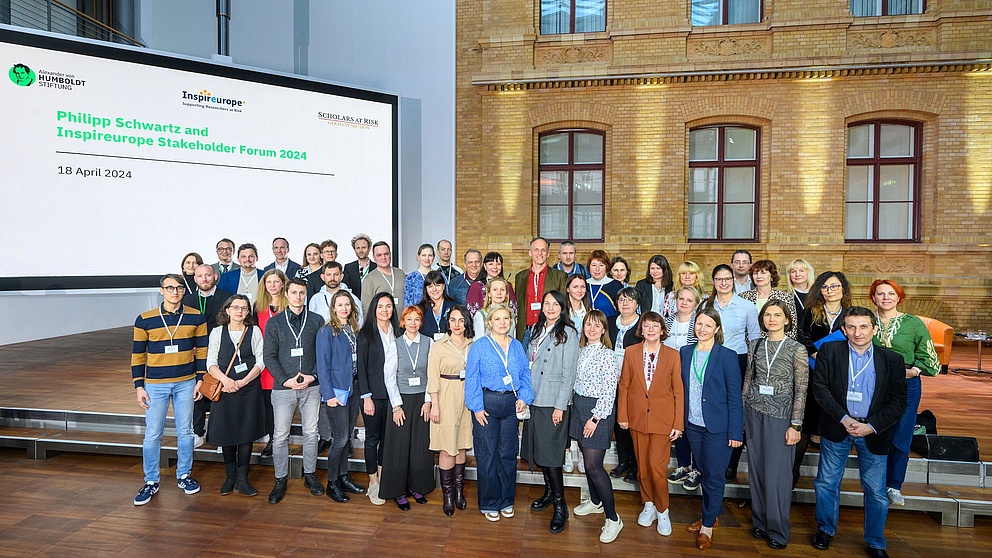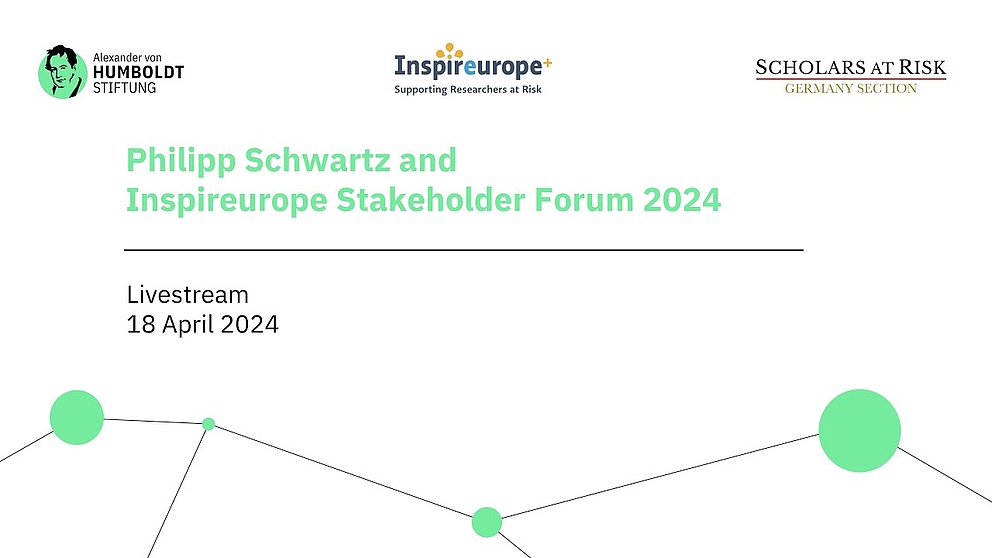
Contact
Press, Communications and Marketing
Tel.: +49 228 833-144
Fax: +49 228 833-441
presse[at]avh.de
“The regime forces the members of academia to become tools of control. That is a crime. We cannot let that happen.” The Iranian performance artist and theatre scholar Azadeh Ganjeh is currently teaching at the University of Hildesheim. She has been living and working in exile in Germany since 2022. Due to her involvement in political and social resistance she was no longer safe in her own country. At the Philipp Schwartz and Inspireurope Stakeholder Forum in Berlin she described the monitoring, propaganda and violence directed at researchers – resulting in a wide-ranging enforced conformity in the Iranian academic landscape. The state, Ganjeh said, was undermining the academic system and sowing distrust, particularly of minorities. There needed to be a broadly-based public debate on the topic of academic freedom because the science system stood for society as a whole. “Academic freedom is a public concern – not only of states or regimes. It needs advocacy from all of us.”

What’s next for Ukrainian researchers?
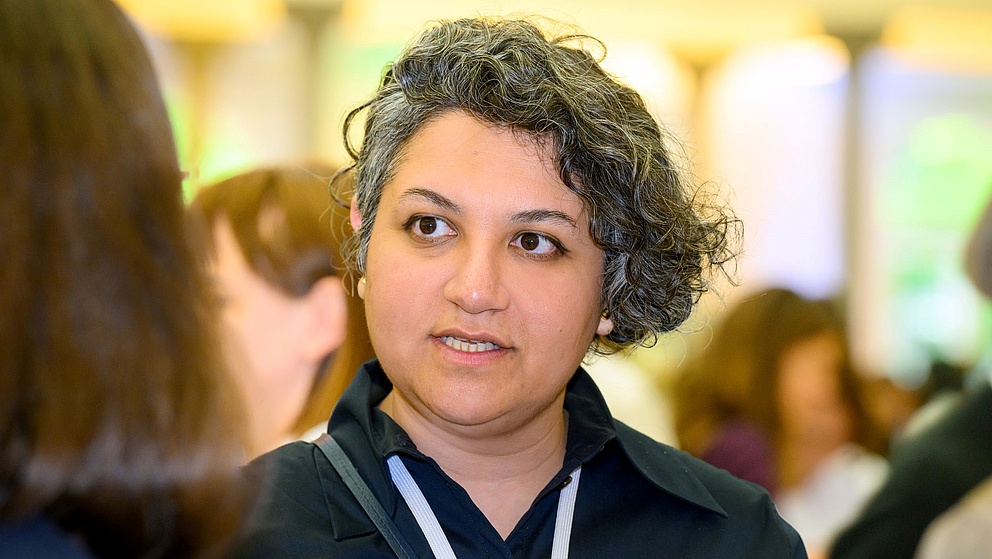
Azadeh Ganjeh was not describing an isolated case. Her voice was one of many who shared their experiences of the state of global academic freedom during these two days in Berlin. From Afghanistan to Equatorial Guinea through to Turkey and Ukraine: researchers reported on persecution and systematic suppression in their own countries but also on the challenges of life in exile, the bureaucratic hurdles in the safe countries as well as the huge support provided by host institutions and mentors in Germany and Europe. In the light of the continuing crises around the world, professional prospects were a particular focus: What will happen when the sponsorship in Germany comes to an end? What networking opportunities are there? How can we create unified, fair standards and criteria for evaluating academic performance – particularly for researchers whose careers have been impacted by war, displacement and discrimination?
“In these difficult times, our commitment to those that are frequently the most courageous voices of dissent and therefore the most exposed to repression is unwavering.”
At the opening of the event, Anke Reiffenstuel, Commissioner for Foreign Science Policy, Foreign Education and Research Policy at the Federal Foreign Office, called for solidarity with those who risk their lives and their futures. “In the difficult times that we live in, with a war on European soil, major threats to a rules-based world order, and authoritarian tendencies gaining ground globally, our commitment to those that are frequently the most courageous voices of dissent and therefore the most exposed to repression is unwavering.” In this context, Reiffenstuel praised the work of the Humboldt Foundation and its associates. „The Philipp Schwartz Initiative has evolved into a significant player within a global network of likeminded partners for the benefit of researchers at risk and the advancement of academic freedom.“ Referring to the necessary support structures, the President of the Humboldt Foundation, Robert Schlögl, drew attention to the Humboldt Network and the pivotal role played by host institutions. “Not a single researcher would have found refuge in Germany and Europe without the commitment of academic hosts and host institutions. They play an essential role in assisting exiled researchers in developing their full potential in safety.”
At the invitation of the Alexander von Humboldt Foundation’s Philipp Schwartz Initiative, in cooperation with Scholars at Risk Europe and the Inspireurope Consortium, the hybrid Stakeholder Forum in Berlin brought together some 300 participants from 37 countries. During public panels and workshops, researchers, political decision-makers and civil servants in administration exchanged views on the state of academic freedom in various regions of the world.
The participants also discussed the extent to which diversity strategies at universities should address the experience of exile in greater depth. Emphasis was placed on the role of trauma-sensitive, accompanying psychosocial support at universities which is still often neglected. Moreover, the question was asked as to how researchers in exile and after their return could contribute to functioning, academic networks; what support measures would be necessary for people to re-orientate themselves both professionally and personally after their experience of displacement. The event provided information, training and networking opportunities on these and other aspects for Philipp Schwartz Fellows and MSCA4Ukraine Fellows as well as for other exiled researchers, academic mentors and funding organisations at local, national and international level.
Immediately before the Forum opened there was a special event for Ukrainian researchers in Germany on the challenges of German-Ukrainian collaborations. The Alexander von Humboldt Foundation, the DAAD, the German Federal Environmental Foundation, the Gerda Henkel Foundation, the Leopoldina and the Volkswagen Foundation invited Ukrainian researchers in Germany to a networking event. They discussed potential science diplomacy measures, and future prospects for researchers in exile and the Ukrainian science system.

